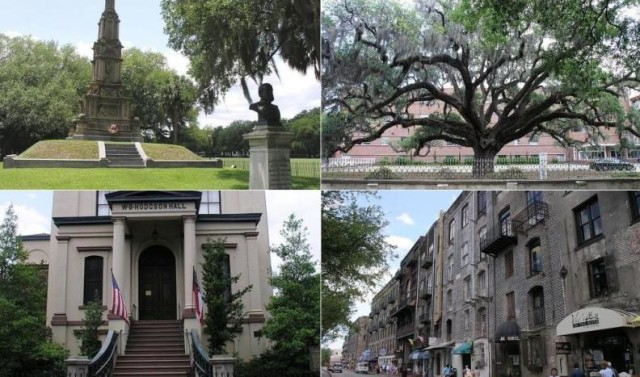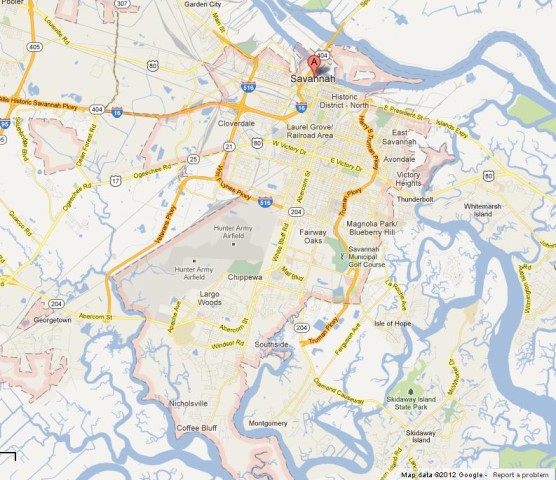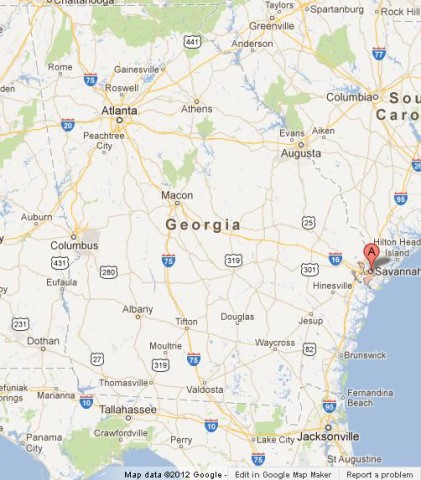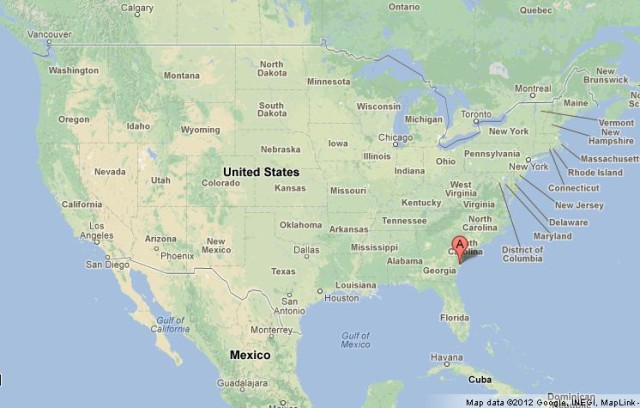In the year 1733, General James Edward Oglethorpe
and 120 other passengers disembark along the Savannah River, giving rise to the 13th American colony, Georgia. Savannah became the first city, Oglethorpe befriended the native Tomochichi, the Indian chief of the Yamacraw tribe. This friendship led to the development in the city without war as happened in other early colonies of America. Oglethorpe organized a city-shaped grid with wide streets interwoven with public squares and parks that served as a meeting point of the original 24 squares, 21 still exist. The farmers discovered that Savannah’s soil was rich and very favorable climate for growing cotton and rice. Plantations and slavery became highly profitable for whites in neighboring areas of South Carolina, making Georgia the last free colony to legalize slavery. The transatlantic slave trade brought millions of Africans to the Americas and many of them passed through Savannah. The economic boom of cotton for export Savannha allowed residents to build luxury homes and churches. By this time Savannah rivaled Charleston as a commercial port. After half a century of great prosperity, two fires destroyed almost the entire left Savannah, one in 1796, another in 1820. In 1818 an outbreak of yellow fever had killed 10% of the population. Savannah was able to recover the splendor and with its huge oak trees was considered the most picturesque and serene city in America. During the Civil War General William Sherman was so enchanted by the beauty of Savannah that he sent a telegram to Abraham Lincoln as the city was a Christmas gift. After the war Savannah recovered cotton growing and the economy grew, began to be known as the “Belle of Georgia.” The historic center was designated a National Historic Landmark and remains one of the most important landmarks in the country. The main historical buildings are the Pirates House, the Herb House and Pink House. Savannah is currently the fourth largest city in Georgia and beyond the historic architecture and cemeteries is also known for its jazz and blues, the museums, fishing and the golf courses. Savannah has a sub tropical climate allows outdoor activities all year round, has hot summers and mild winters. Hotels in Savannah
What to visit in Savannah: City Market; River Street; Forsyth Park; Bonaventure Cemetery; Savannah Film Festival; Savannah Music Festival;
Map of Savannah (GA)
Where is Savannah on Map of Georgia (GA)
Where is Savannah GA on US Map
Weather in Savannah
Where to Sleep in Savannah




